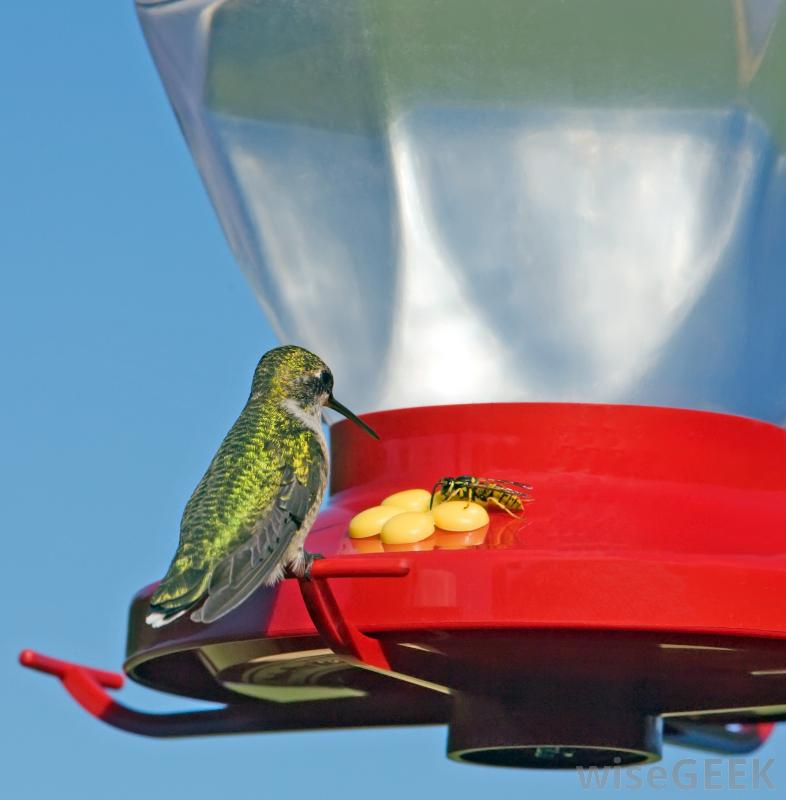 Last week, I wrote about ways to keep ants away from hummingbird feeders, but there are sometimes more alarming creatures out to get the nectar: wasps, hornets and yellow jackets.
Last week, I wrote about ways to keep ants away from hummingbird feeders, but there are sometimes more alarming creatures out to get the nectar: wasps, hornets and yellow jackets.
Flying insects, like all animals and bugs, contribute their own things to nature, but they can bully hummingbirds and orioles away by constantly swarming feeders. Some of the aggressive insects like yellow jackets will also attack and sting birds. Not to mention, these aren’t insects you’d want around your property where you or your kids are.
Unlike ants, which can be stopped with things as simple as a water moat, flying insects are a bit harder to keep away. Here are some things you can do from discouraging them from swarming your feeders.
Keep your yard clean
The first thing you should focus on is prevention. Limit or cover things in your yard that would attract these flying insects. For example, if you have a cat or dog, don’t leave their food sitting outside (this could also attract unwanted ants too). Cover any trashcans that may have food particles in it. You generally want to make sure there’s no standing water outside too. If you have a birdbath, consider getting one with moving water.
Buy feeders without any yellow
The only feeders really at risk of flying insects are hummingbird feeders and oriole feeders. Since wasps are attracted to the color yellow and can’t see red very well, getting a red feeder without any yellow is a good way to keep wasps from noticing it.
Get a dripless feeder
You can reduce the presence of flying insects by getting a feeder that doesn’t drip nectar. That will stop the scent of sugar from wafting in the air.
Take the feeders down for a few days
Once insects have found your feeders, they will usually be able to find them again if they’re in the same spot. So in order to get rid of them, you should take down the swarmed feeders for a few days. This is usually not a good idea because birds come to rely on these feeders, but if it’s getting overrun by unwanted insects, removing them for a few days will make the insects forget about them.
Another solution is to hang up wasp traps near the feeder. Fill the traps with highly concentrated sugar water (you need to make it stronger and more desirable than the hummingbird nectar or oriole jelly). The wasps will fall into the trap and be unable to get out.
Get a hummingbird feeder with bee guards
Bee guards keep flying insects from entering a hummingbird feeder, but leave enough space for hummingbirds to drink the nectar. Many hummingbird feeders already come with bee guards, but you can also buy them from manufacturers like Perky-Pet.
For oriole feeders, switch jelly with live mealworms
Getting flying insects away from oriole feeders is a bit more difficult because they’re usually more open and can’t accommodate bee guards. So, aside from taking it down, you can also just replace the jelly at the feeder with live mealworms, which will still attract orioles.

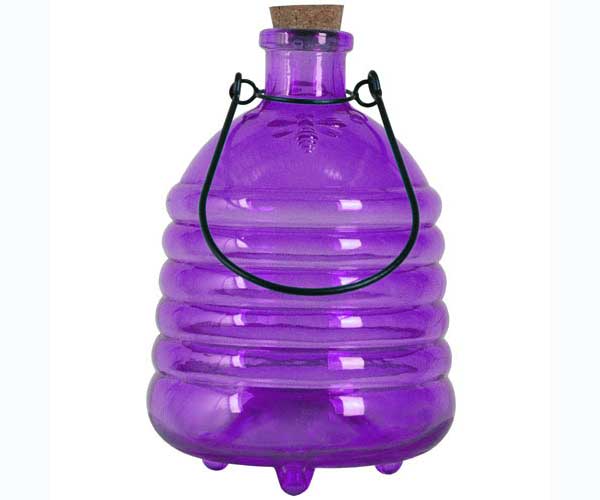
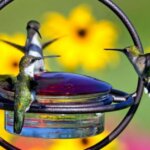
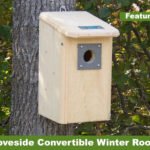
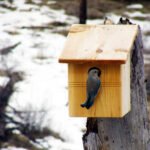
51 Comments
I want to keep the wasps away from my regular bird feeders. I don’t have any hummingbird feeders but all these answers only address them and not the feeders for regular birds.
No, not at all. We have many red wasps here around our country home. I started using paper bags hung around our porch. The hummers have never taken notice however, the wasps stay clear.
Shat height and distance to the hummer feeder do you hang this? can you post s photo or link to one?